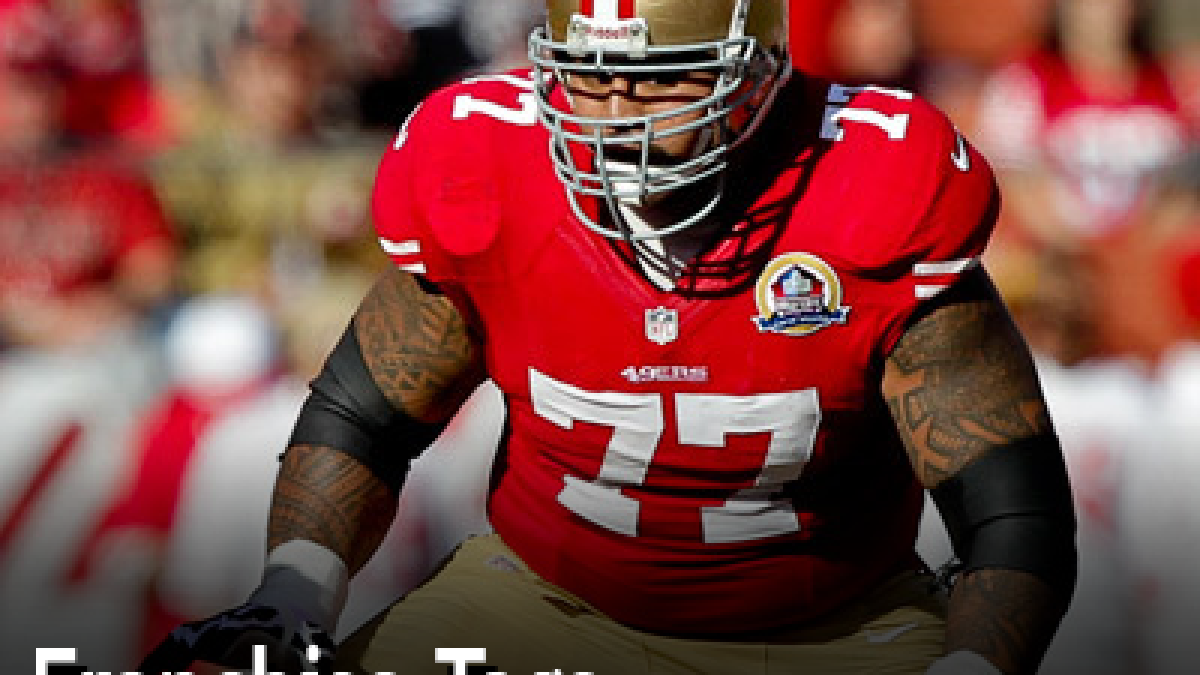 The Franchise Tag option hasn't been used by teams nearly as often in recent seasons as it was in 2011 and 2012, but it remains as a method of retaining top talent — even if it's just buying time to work out a long-term deal. In many cases the numbers don't add up or it just doesn't make sense for one reason or another, but until you've had a look through a team's cap situation and needs, it often not so easy to guess where the tags will be applied. To help with that, we'll be giving our take in this division-by-division series.
The Franchise Tag option hasn't been used by teams nearly as often in recent seasons as it was in 2011 and 2012, but it remains as a method of retaining top talent — even if it's just buying time to work out a long-term deal. In many cases the numbers don't add up or it just doesn't make sense for one reason or another, but until you've had a look through a team's cap situation and needs, it often not so easy to guess where the tags will be applied. To help with that, we'll be giving our take in this division-by-division series.
Arizona Cardinals
With an impending 14 free agents ready to hit the market, the Cardinals have some difficult decisions to make this offseason, one of which is whether they’ll decide to slap the franchise tag on Antonio Cromartie. Cromartie finished this season ranked 45th in terms of coverage – quite an improvement considering his 2013 campaign in which he finished second to last. Still, seeing as how the Cardinals are several million over the cap, a cornerback tag figure that would cost close to $13 million and with so much invested in Patrick Peterson, the use of the tag would not make sense in this case.
Decision: No Tag
San Francisco 49ers
With little to no salary cap room available and many big time contributors hitting the market, the 49ers could be in for a long offseason. One of their top priorities is retaining former first-round pick, Mike Iupati, who has graded out as a Top-15 guard all but one season since entering the league in 2010. That being said, Iupati’s success is largely due to his run blocking ability, as he has struggled in pass protection – never once earning an above average overall pass blocking grade in a single season and cumulating a Pass Blocking Efficiency (PBE) of 95.1 in five years, 14th out of 15 fifth-year guards. No question Iupati is in line for a significant pay raise, but since the offensive line is considered one position for tag purposes — a position greatly skewed by left tackle money — Iupati would cost nearly $13 million if tagged, such a pay-raise is difficult to justify.
Decision: No Tag
Seattle Seahawks
Since their arrival in Seattle back in 2010, the duo of head coach Pete Carroll and GM John Schneider have only used the franchise tag once and the trend is likely to continue. The most likely candidate to receive the tag would be the Seahawks' highly sought after cornerback, Byron Maxwell. Though Maxwell is one of the most coveted CB's on the market, Schneider has already confirmed that Seattle won’t use the franchise tag, and rightfully so. At a value of $13 million, Maxwell is simply more than he’s worth to Seattle, and with extensions looming for Russell Wilson, Bobby Wagner, and Marshawn Lynch, franchising Maxwell doesn’t make sense. The Seahawks have had much success under Carroll and Schneider, overspending on Maxwell isn’t part of the formula.
Decision: No Tag
St. Louis Rams
Though the Rams have notable players who are nearing free agency, such as Kenny Britt, the use of the franchise tag simply isn’t warranted. After reuniting with Jeff Fisher and producing a pass grade of +2.6 (his highest since 2010), in addition to 10 receptions of 20+ yards (tied for 13th among wide receivers), Britt may draw some interest on the open market. Luckily for the Rams, Britt has expressed interest in returning and has flourished under the command of Fisher, which bodes well in regards to both sides working out a deal. It simply won’t be a deal that commands upwards of $13 million in a single season.
Decision: No Tag


 © 2025 PFF - all rights reserved.
© 2025 PFF - all rights reserved.